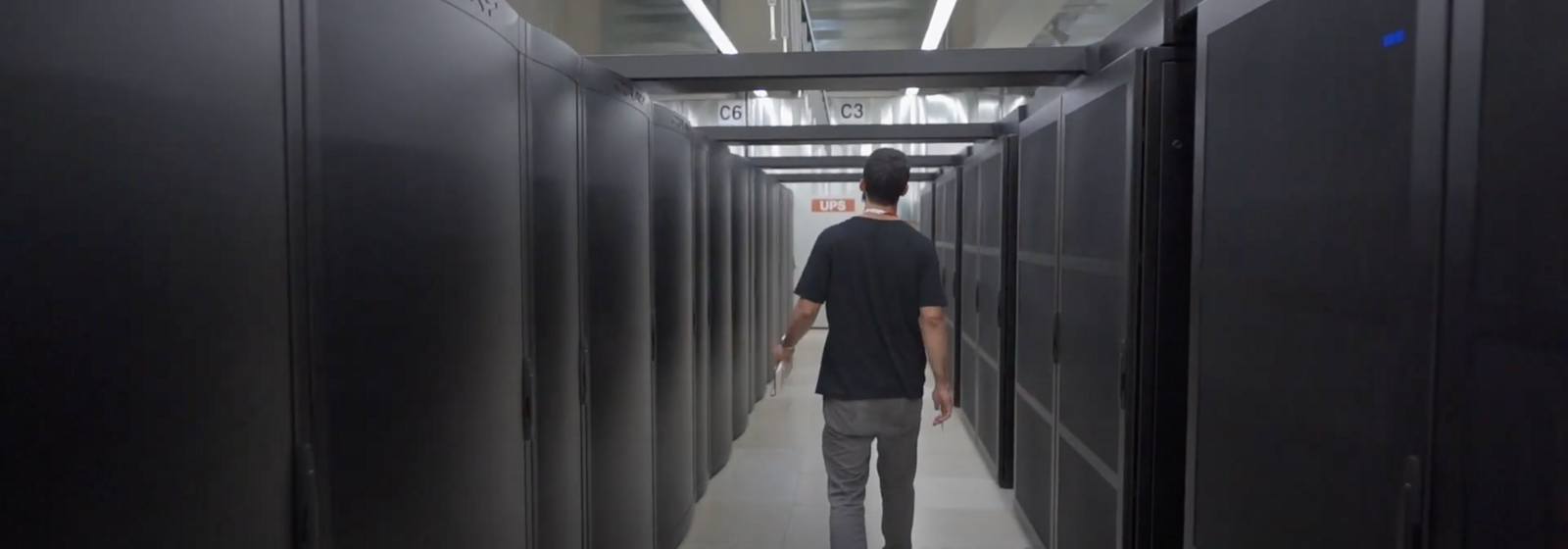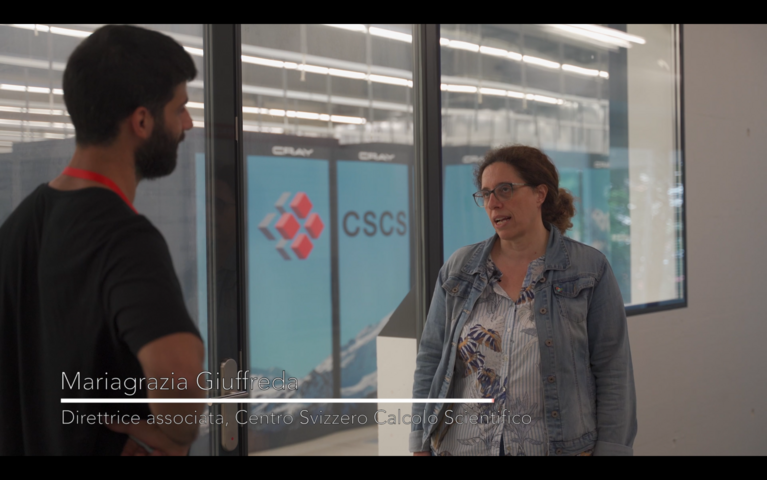September 03, 2021 - by CSCS
What is the life cycle of all the data produced by scientific research? Is there any way to recycle it for new discoveries? The latest documentary from the Swiss science journalist and biophysics researcher Simone Pengue "Forgotten data: the leftovers of science" aims to get the bottom of these questions exploring the field of data sharing in biology from multiple angles, showing the complex attractiveness of the subject.
CSCS is in the first line among the outstanding speakers taking part in this movie with our Associate Director Maria Grazia Giuffreda, who guides the watchers through the committed effort of CSCS to promote open data. Thanks to 120 PB of storing space, a significant part of data produced by researchers in Switzerland and abroad ends up here. Safely stored in our "digital caveau" for at least 10 years, the unprocessed data can be directly shared with other researchers through the so-called Persistent Identifier (PID). The PID works exactly like a home address: it contains all the information necessary to know what to find where, allowing a straightforward access to the data from every user all around the globe. The concrete solutions to data sharing CSCS is offering adds on top of the computational facilities we are usually known for.
Join Simone Pengue’s journey as he meets experts from different fields, starting at the IT at the Biozentrum of University of Basel, to CSCS, back to Basel to the Swiss Institute of Bioinformatics and the Institute of Biomedical Ethics of the University of Basel to understand the computational tools necessary to extract hidden information underneath piles of data, and what ethical questions arises.
"’Forgotten data: the leftovers of science’ has the ambitious purpose to stimulate the debate about disclosing experiment outcomes", says Simone Pengue. He is convinced that the discussion on data sharing in biology cannot be pushed any further: "Yes, there are theoretical and practical obstacles, but the reward will be so big that the biology community must do an effort to converge on a coordinate solution".
The film has been produced in the frame of the Prix Média Newcomer 2021 from the Swiss Academies of Science and challenges Chloé Carriére, who's presenting an episode of her "The Galactic Chloé Show" about exoplanets. The public is invited to vote for one of the two candidates until the 5th of September 2021.

